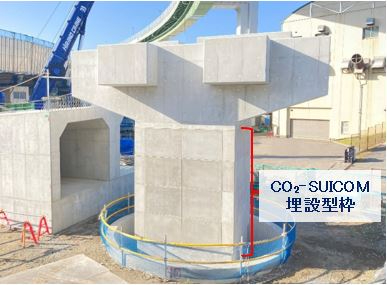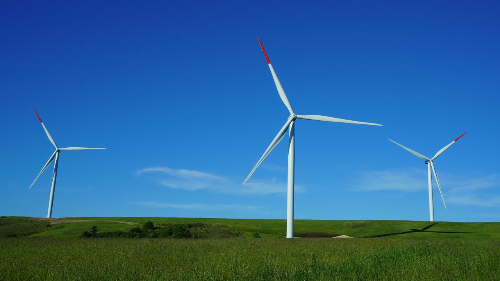J-STORIES ー 富士山の裾野に広がる富士五湖地域は国内屈指の観光地として知られている。その豊かな自然と景観の美しさを守りながら、国際的なブランド力のある観光地と先進的な都市機能を兼ね備えた日本の新しい「自然首都圏」に育てようという構想が動き出した。
近い将来、東京と名古屋を結ぶリニア新幹線が開通すれば、富士五湖地域の北側に新たに「山梨県駅」(仮称)ができ、都心の品川駅と25分でつながる予定。東京を中心とする現在の首都圏との地理的な一体性は今後さらに高まる見通しだ。

構想では、そうした富士五湖地域の可能性を踏まえ、世界に誇れるリゾート地域としての価値を高めるとともに、「空飛ぶクルマ」や水素自動車といった次世代モービリティを始めとする最先端の都市機能を導入する。さらに、スイスのダボス会議のような主要国際会議も誘致し、観光、ビジネス、芸術、教育、研究など各分野で国内外から人材や投資を引き寄せる「世界に類を見ない先進的な地域」をめざす。
この構想を主導するのは、山梨県が中心となって昨年末に設立した「富士五湖自然首都圏フォーラム」。最高顧問にはノーベル生理学・医学賞を受賞した大村智さん、2020東京オリンピックの会場となった国立競技場のデザインを手がけた隈研吾さん、前参議院議長の山東昭子さんが就任、今後、政治や行政、産業界、教育・研究機関や労働組合などからの幅広い参加を呼び掛けていく。

今年は富士山が世界遺産に登録されてちょうど10年という節目の年でもある。しかし、富士山登山ルートについては宿泊施設やインフラ不足が指摘されており、国際的な山岳観光地とはかけ離れたイメージが定着してしまっている。
そのような現状を打破し、富士五湖エリアをスイス並みの国際観光地とするための一つの試みが、五合目までを軽量で環境負荷が少ない次世代路面電車(Light Rail Transit, LRT)でつなぐ「富士山登山鉄道」構想だ。現在はマイカーやバスが走っている道路にLRTを代わりに走らせることで、80%程度の二酸化炭素(CO2)の排出削減を実現するとともに、冬季は積雪によって閉ざされることが多い五合目までのアクセスを年間を通して可能にしたい、と推進者側は話している。
同時に、LRT構想には登山者の人数を管理できるようになるというメリットもある。環境悪化や事故を防止するために、エベレストやモンブランなどの世界的な山々においては1日あたりの登山者数を制限している。富士山では現在、マイカーやバスの乗り入れが混雑や渋滞を引き起こしているが、LRTに切り替えれば来訪者の管理が可能になり、富士登山の利便性や快適さを大きく改善できると推進者側は期待している。
昨年のNHKの報道によると、ユネスコの諮問機関もこのLRT構想については「環境悪化などの富士山が抱える多くの課題に対応でき、歓迎できる」と、評価する内部文書をまとめているという。

全体の構想としては、このLRT計画を含めた新しい移動手段の導入の他にも、観光客のみならず芸術家、クリエイター、起業家、大学や研究機関などを誘致し、富士五湖地域を単なる観光地ではなく、大自然の中にいながら文化的かつ生産的な活動ができる場として再生したい考えだ。
構想の中で描かれている各種のプロジェクトの実現には、まだ多くの時間と投資が必要だが、その趣旨に賛同して参加を希望する企業も現れており、それらの企業を集結させたコンソーシアム(共同事業体)も構築され始めている。

同フォーラム代表代行を務める田坂広志・多摩大学大学院名誉教授は、フォーラム発足の記者会見で「アメリカでいえばポートランド、ヨーロッパではアムステルダムなど、いろいろな地域がそれなりの小さなサイズで自然と調和し、環境に優しく、人々が快適に暮らせる場が生まれ、しかも首都的な機能が十分にある」と述べ、「富士五湖地域にそういう場を作り出して行く試みをこれから始めたい」と語った。

記事:前田利継 編集:北松克朗
トップ写真:SeanPavone/Envato
この記事に関するお問い合わせは、jstories@pacificbridge.jp にお寄せください。
***
本記事の英語版はこちらからご覧になれます。
***
この記事はJ-STORIESの独自取材に加え、以下のサイトの情報を参考にしています。




















![[PODCAST] 如何打造成功的新創企業社群(第2集)](https://storage.googleapis.com/jstories-cms.appspot.com/images/1748493203370business-man-holding-light-bulb-social-network-2024-10-31-22-37-36-utc_smallthumbnail.jpg)


